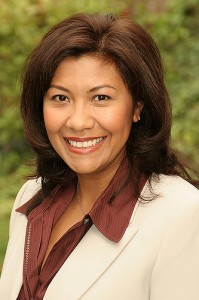Dispatcher Turned Assemblywoman Seeks 9-1-1 Privacy Through Bill
Neil Nisperos, Inland Valley Daily Bulletin, (Ontario, CA)

Norma Torres
Legislation that would keep emergency 911 dispatch calls from being spread through traditional or online media has been introduced by Assemblywoman Norma Torres, D-Chino.
The policy proposal comes in the wake of widely disseminated audio from 911 dispatch calls related to a medical emergency involving the actress Demi Moore.
The 911 call involving her recent hospitalization was released to media programs.
A police dispatcher for 20 years prior to her political career, Torres said such exchanges should be kept private because they involve the intimate details of a person’s health.
“I think it’s important to protect victims,” Torres said. “Having been on the other side for 18 years, hearing people call 911, it’s not their best moments, and those horrific moments ought to be protected.”
Torres recalls a tragic 911 call she took years ago as a dispatcher.
“I took a call and it was a graphic call,” Torres said. “You can hear shots in the background and children screaming. You can hear a young girl begging for her life. The media was really hungry to get a hold of that tape. Thankfully, a detective put out for an order so that the media could not have a copy of that call. This legislation is about people not having to relive the very tragic moments they that they shouldn’t have to relive.”
911 audio recordings are part of the public record because they’re part of the crime report, Torres said. Torres said privacy legislation could help prevent potential cases of avoidance for the use of the service.
“Folks that should have called 911 didn’t because nobody wants to be the voice that’s out on the wavelength, talking about someone foaming at the mouth and their eyes rolling,” Torres said.
“Nobody wants that over the airwaves. To me, it’s about protecting the privacy and intimate details of one’s health.”
Charles Doskow, dean emeritus and professor of law for the University of La Verne College of Law, said a law could be written where such information could be used only for evidence at a trial where there is a legitimate need for them, but “you run into the issue of freedom of the press.”
“It’s a hard question because all our inclinations are that these are facts, and we should let the facts out,” Doskow said.
Doskow said a more valid argument would be whether such a law would encourage more people to use 911 because they are protected from unwanted publicity.
“Whenever you make a law like this, you have to consider whether giving this protection would encourage people to give more information and use 911,” he said.
Copyright © 2012 LexisNexis, a division of Reed Elsevier Inc. All Rights Reserved.

